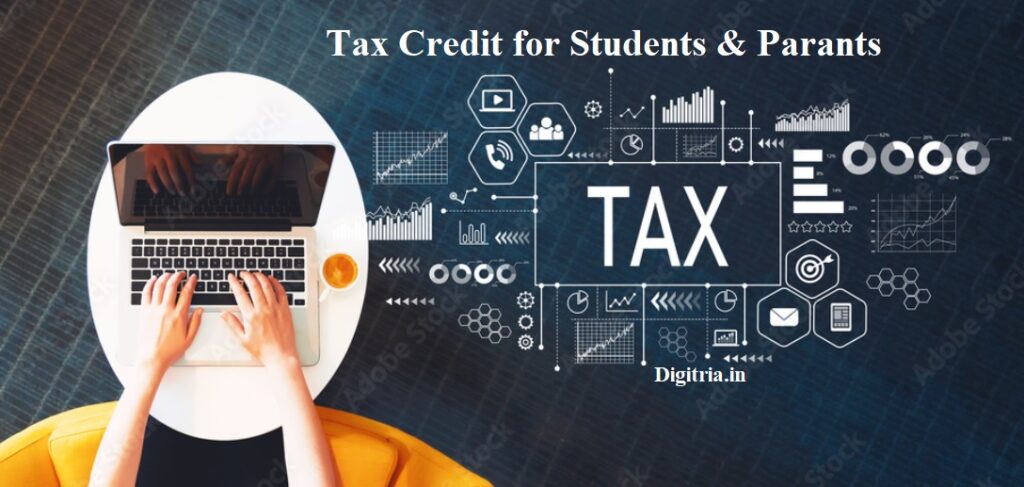Tax Benefits for College Students and Parants, OATC FSA Recipients

Tax Credit: Usually, Financial Student Aid (FSA) recipients find it hard to repay their student loan debt. The Federal Government issues tax credits and deductions to reduce the financial burden on students. In fact, seventy-one percent of the students who graduate from four-year schools do fail to clear off their loan debt. It is observed that normally a graduate who took loans walk out with $37,000 pay off.
However, the Federal Government opens tax season with a relief. The tax credit reduces the amount of income tax an individual needs to pay, while the deductions minimize the amount of an individual’s taxable income. The Federal Government has issued four tax credits and deductions. The student must check for the kind of credit and deduction that suits to the purpose. In a way, the financial support shall lessen the impact on the education expenses.
Tax Credit for College Students and Parants, OATC FSA Recipients Benefits:
Eligibility Criteria for American Opportunity Tax Credit, AOTC:
- The student or the dependent who is pursuing a degree is eligible but on condition. They should be enrolled for half-time and above in college or career school.
- The basic tenure of graduation is four years and the credit application works out only for that period.
- If a student takes longer time than four years then the American Opportunity Tax Credit no long applies beyond the stipulated four years.
- An individual (student) can have an income up to $80,000 or for married couples their joint income must be up to $160,000.
- Individuals who meet the above-said facts can claim to get a tax credit on income.
- An Individual can claim AOTC by completing Form 8863 and staple it to the duly filled Form 1040 or Form 1040A.
American Opportunity Tax Credit (AOTC):
- If a student stands eligible for financial student aid, then one will get an annual credit of $2,500. The amount can be claimed for educational expenses such as tuition fees.
- Consider a case, for those individuals whose tax creditability is low. Since they do not owe the IRS, the federal department shall extend tax credit of 40 percent. To such students, the tax credit is deposited into their bank accounts and is equivalent to $1000.00
- AOTC IRX Portal is www.irs.gov.
Also Check: Ultimatix TCS Login
Tuition and Fees Deduction:
In tax deductions, the student is never benefited from refundable credit. On availing the FSA, IRS allows to a tax deduction up to $4000 against tuition and fees deduction. This deduction doesn’t apply to those, tax liability is zero.
Eligibility Conditions for Tuition & Fees Tax Deduction:
- A tax deduction up to $4000 is allowed provided the individual has taxable income. And, an individual with zero tax liability is not eligible for tuition and fees tax deductions.
- Individuals can seek a tax deduction on tuition and fees provided one is a student, spouse, or the student is the dependent of the individual.
- The tax deduction should relate to the tuition and fee expenses of higher education only. The individual is not liable to opt for any other living expenses such as rentals, basic amenities.
- The individual income must be not more than $80,000 and the collective income of the spouses should be not more than $160,000. Only then one is entitled for tax deduction on the taxable income.
Student Loan Interest Tax Deduction:
- An individual may be a student, parent of a student, then one can get a tax deduction up to $2,500 of the interest paid on the loan amount.
- An individual may have paid extra payments then one can make a tax deduct on the extra interest that has been paid.
Eligibility for loan Interest Tax Deduction:
- An individual must have paid interest on the student loan in 2021.
- The income tax filing must be single or if married the spouse must file it jointly. In case, the spouses do file IT returns independently then the interest tax deduction on the loan amount is not applicable.
- The individual income cannot exceed $80,000 for a single person and $1,60,000 if one is married.
- The IRS does not allow tax deductions on the interest of a loan amount for a loan other than Financial Student Aid loans.
Claiming Credits and Deductions:
1. An individual is allowed to claim AOTC, LLC and the tuition fees deduction but there are few limitations set. A student can claim expenses either on AOTC or LLC. Hence only one education benefit can be claimed.
2. In case a student is entitled for financial assistance in a tax-free grant. Along with it, one can claim for qualified education expenses such as tax credit or tax deductions on a condition. The individual must deduct the grant amount from the qualified education expenses and the remaining balance amount can be claimed accordingly.
Tax Benefits on Higher Education Other Sources:
- An individual when pays for higher education can attempt other ways to offset taxes.
- The US Government releases education saving accounts such as 529 plan. It offers tax-free earnings growth and tax-free withdrawals. These funds can be applied for qualified education expenses.
- Education Saving Bond Program: An individual can benefit from this sort of program because the IRS excludes interest on the income generated from the saving bonds. The individual can utilize the tax-free money for higher education expenses when it is redeemed.
- An individual can gain complete information on all educational tax credits at IRS Tax portal. Every Individual free to check for the benefits it offers in every State.
Caution: The taxation laws, rules and regulations do continually change in the US. Therefore, it is always advisable to consult an accountant or tax attorney on taxation issues.
Also Read: FAFSA Federal Student aid Login
